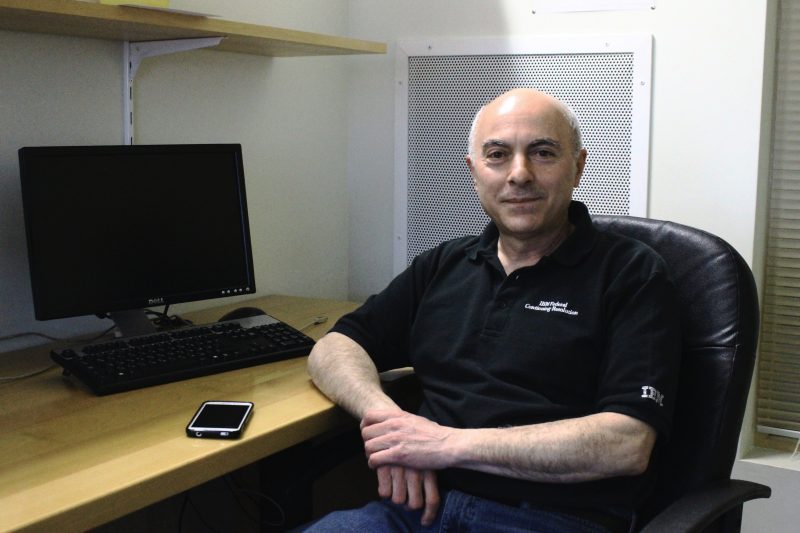
AUA Zaven & Sonia Akian College of Science and Engineering Welcomes Adjunct Lecturer David Davidian
3 min readYEREVAN, Armenia – This month the AUA Zaven & Sonia Akian College of Science and Engineering (CSE) has elected to feature one of its students’ most favorite instructors, David Davidian in a short interview addressing the instructor’s career and field of interest:
CSE: What caused your transfer to the IT field?
Mr. Davidian: Even before officially graduating, I took a job as a Reactor Engineer at Connecticut Yankee Atomic Power Plant. Once there, I realized that nothing (luckily) interesting happens at a nuclear plant, except during refueling, which I was in charge of. While at the plant, I discovered that the facility’s ancient IBM computer system provided all the pressure and temperature readings I would need for my job. So rather than walking around the plant all day, I simply learned how to program the computer and my job was done in five minutes. I was so enamored by this I eventually left that position to attend graduate school and studied Systems Engineering. While there, I designed and wired my own Intel-based computer. Before finishing graduate school, I had three job offers from computer firms. My three decade IT career started with NEC Electronics, then Sun Microsystems, IBM, and finally Oracle.
CSE: What motivated you to move to Armenia? What has been the biggest challenge?
Mr. Davidian: During my years in and after college, I was involved in genocide recognition and other local diasporan activities. I visited Armenia periodically starting from 1991. My name became somewhat known in Armenian circles as I initiated the first internet debates on the Armenian genocide and events in Azerbaijan in the late 1980s. In 1992, between IT jobs, I worked in Yerevan with the then Minister of Communications, until it got very cold, without gas or stable electricity in the fall of 1992. I had always hoped there would be some position in Armenia where I might make a difference as my career progressed. The outsourcing of US jobs and the 2008 global financial crisis “squeezed” the US middle class and made the prospect of a job outside the US more attractive. After attending the fall 2013 DigiTech Conference at the Mergelian Institute, it was clear there would certainly be bright prospects for making a significant contribution to Armenia’s emergent IT sector. In 2014, I sold my house in Boston and moved to Yerevan with my family.
I was rather familiar with traditions and social conditions in Armenia, so it wasn’t much of a challenge in terms of adjusting. However, a big adjustment came when I began to drive in Yerevan. The best way to describe it is laissez-faire driving!
CSE: How would you evaluate Armenia’s academic potential? What industries do we need to focus on, in your opinion?
Mr. Davidian: With the fall of the Soviet Union, Armenia lost an incredible amount of strategic, academic and research potential. It is unfortunate that the value of this existing potential wasn’t retained in addition to mutual misunderstanding between Armenia and its diaspora. Subsequently, Armenia had to re-create the proverbial wheel. Imagine where Armenia would be today if, for example, the technological prowess of the Mergelian Institute would have continued. Armenia’s academic potential is strong and if directed toward national interest, will have a direct impact on daily life in Armenia and the region. It is easy to focus on, for example, Big Data Analytics or robotics. However, nurturing a culture that rewards technological and societal creativity is where the world is moving. The tenaciousness of Armenians lends itself to such creativity.
CSE: How does it feel teaching at AUA? What do you think of AUA students?
Mr. Davidian: Teaching at AUA is extremely rewarding. At AUA, I am able to teach salient, future-looking topics and trends extracted from three decades of industry experience, technology analysis, and hand it off to the next generation.
Education is an ever-changing process. AUA has a dynamic structure, meeting the standards of what higher education requires and is demanded of as we progress through the 21 century. The ability to think through problems is more critical than ever while confronting the internet age of instant data availability. AUA students are at the crossroad of this transition.

